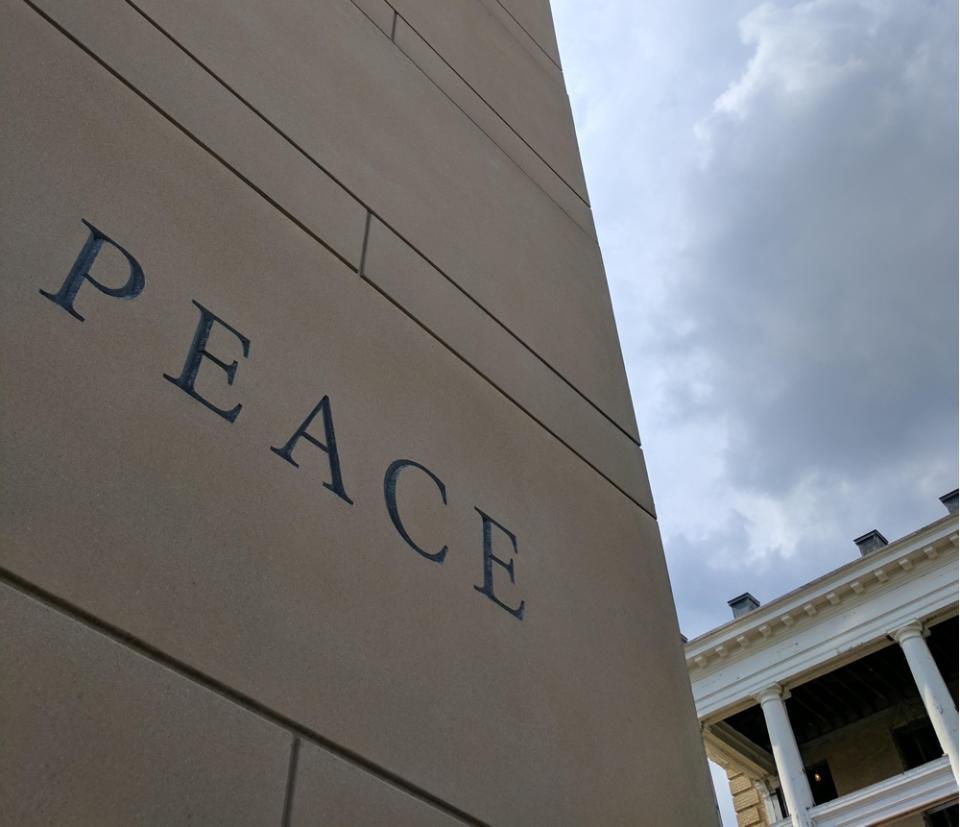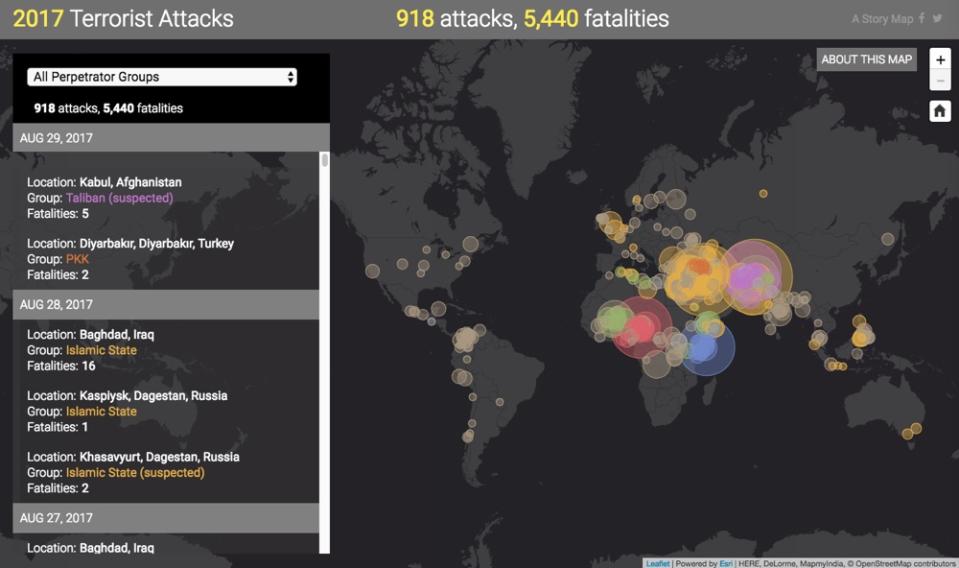Hate and violence around the globe? There’s an app for that.

The plague of “fake news” may be news to Facebook (FB), but it’s a familiar foe to a small non-profit in Washington that’s trying to use mobile apps, big data and social media to promote peace and accountability in places like Iraq, Kenya and Mexico where those technologies have often been abused to spread lies and hate.
That experience has given the PeaceTech Lab some expertise that social networks and other business with footprints outside the U.S. might want to borrow. And with a little funding help from Amazon, it hopes those businesses find some of the group’s insights valuable enough to pay for.
PeaceTech projects
The PeaceTech Lab aims to develop “technology that can be applied to tackle the triggers of violence,” president and CEO Sheldon Himelfarb said in an interview at the lab’s Washington headquarters at the U.S. Institute of Peace.
In practice, that means projects that rely on finding local coders and activists to back — and which don’t assume that they all carry the latest smartphones. As Himelfarb put it: “How do you enable local communities to use low-cost technology to promote accountability?”
In Iraq, it supported the development of an online map that displays and categorizes attacks on journalists and activists. In Mexico, the lab worked with reporter Jorge Luis Sierra to develop an app that assesses the risks journalists face and offers security advice. And in Kenya, the organization partnered with the startup Ushahidi to provide a fact-checking service via text messaging.

Reviews, however, have varied.
Ben Larned, development and communication coordinator with the Washington-based Iraq Foundation, called the lab’s work to map freedom-of-expression violations “a very successful project,” and credited PeaceTech staffers as “passionate activists and pioneers in utilizing technology to improve civil society in Iraq.”
But an expert on threats to journalists was not so impressed with the output of the lab’s attempts to keep reporters safe. “None of the information I was given on a few simulated run-throughs was particularly tailored, specific or actionable,” said Tom Lowenthal, staff technologist at the Committee to Protect Journalists.”
Meanwhile, back in D.C. the lab builds various analytical tools to track conflict. For example, it developed a map with the cartographical-data firm Esri to track terrorist attacks as recorded on Wikipedia.
Fighting fake news
This work has given the lab more experience than most with fake news — not in the sense of “news stories President Trump doesn’t like,” but falsehoods intentionally created and spread to advance a political agenda or set one racial or ethnic group against another.
“We’re calling it fake news today, but it’s been going on in conflict zones forever,” Himelfarb said. “News that was not reliable and accurate was absolutely a contributing factor.”
But, he added, yelling “fake news!” or equivalent language won’t stop people from taking this bait.
“Just trying to swarm recipients with other messaging is not sufficient,” Himelfarb said. “We need to invest more in actually understanding the vocabulary.”
As part of that, the lab began tracking social-media posts in and about South Sudan and discovered that a wireless network’s name had become shorthand for a particular tribe — and that much of the hate-speech posts it identified came from emigrants in the U.S. and elsewhere.
The lab has also begun looking to help local media do a better job. Said Himelfarb: “One of the ways we work on countering that online hate speech is working with broadcasters who are really trying to do solid journalism.”
Financial worries
Paying for this work has long been a worry for the lab — the U.S. Institute of Peace, a non-profit established by Congress in 2008, spun off the PeaceTech Lab in 2015 to allow it to seek funding from companies and other sources instead of having to rely on congressional appropriations.
Despite having a relatively low profile — CPJ and the anti-corruption group Transparency International hadn’t even heard of the lab until I asked for comment about its work — the lab has been able to line up what Himelfarb called “very significant” backing from Amazon (AMZN) and IBM (IBM).
The latter’s support has been particularly important in groundTruth, an ambitious early-warning system for sectarian conflict — one that Himelfarb hopes will also yield business intelligence valuable enough for companies to want to subscribe.
“Companies will pay a boatload for that to prevent business disruption,” he said.
But the lab faces its own potential business disruption in Trump’s proposed fiscal-year 2018 budget. The White House wants deep cuts to peacekeeping and diplomacy in general but would impose a 100% reduction on the U.S. Institute of Peace in particular, which it says “serves a niche mission that duplicates other Federal programs.”
That would boot the lab out of its current quarters and the expanded space it plans to move to next year in a set of buildings now under renovation for the institute.
Himelfarb noted that, as a non-profit, the lab doesn’t depend on government backing but acknowledged the downside of the unlikely event of Trump’s budget proposal surviving contact with Congress.
“That would hurt us a lot,” he said. “It’s why we’re really working our butts off to find new sources of revenue.”
More from Rob:
Samsung challenges Apple Watch with its new Gear Sport smartwatch
These college students are vying to build Elon Musk’s hyperloop
A massive EU privacy rule could bring an unexpected benefit for US consumers
Apple’s decision to drop privacy apps in China might not be the last of its kind
Email Rob at rob@robpegoraro.com; follow him on Twitter at @robpegoraro.

 Yahoo Finance
Yahoo Finance 
